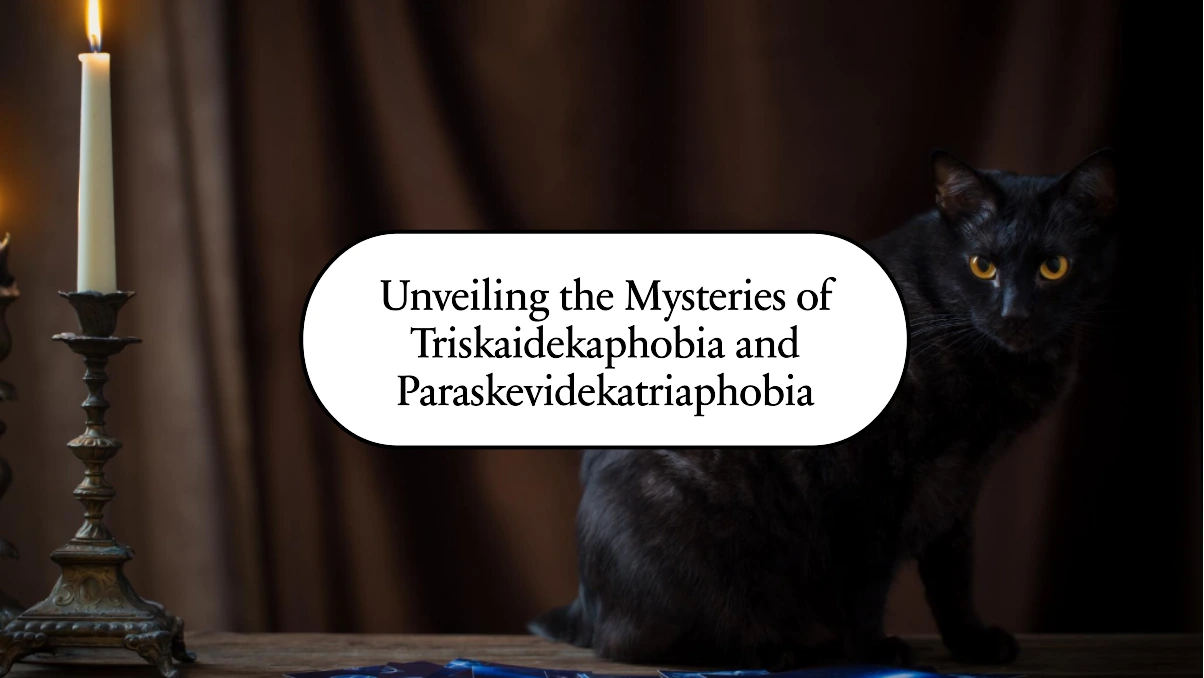Superstitions have been an integral part of human culture for centuries, shaping the way people perceive and interact with the world around them. Among these superstitions, Triskaidekaphobia (fear of the number 13) and Paraskevidekatriaphobia (fear of Friday the 13th) stand out as some of the most intriguing and widely recognized. In this blog, we will explore the historical origins, cultural significance, and impact of these superstitions on people’s lives.
A Brief Overview
| Superstition | Definition |
| Triskaidekaphobia | Fear of the number 13 |
| Paraskevidekatriaphobia | Fear of Friday the 13th |
The Roots of Triskaidekaphobia
Historical Perspectives
Triskaidekaphobia, the fear of the number 13, has deep historical roots. Here’s a glimpse into its origins:
| Civilization | Triskaidekaphobia Beliefs |
| Ancient | In ancient Norse mythology, there is a story of a banquet in Valhalla attended by 12 gods. Loki, the trickster, was not invited, making 13 at the table. His actions led to chaos and death. |
| Christian | Some associate the fear of 13 with the Last Supper where 13 individuals were present, including Judas, who betrayed Jesus. This event has contributed to the negative connotations surrounding the number 13. |
Cultural Significance
The fear of the number 13 transcends borders and cultures. It’s important to understand its cultural significance:
| Culture | Beliefs and Practices Regarding 13 |
| Western World | Many Western societies consider 13 to be an unlucky number. Some hotels and buildings avoid having a 13th floor, jumping directly from 12 to 14. |
| Chinese | In contrast, the number 4 is considered unlucky in Chinese culture due to its phonetic similarity to the word for “death.” The number 13 does not carry the same negative connotations. |
| Italian | In Italy, the number 17 is considered unlucky, often written as “XVII” to avoid the Roman numeral “X,” which resembles a gallows. |
The Enigma of Paraskevidekatriaphobia
What’s in a Date?
Paraskevidekatriaphobia is the fear of Friday the 13th. Let’s dive into the enigma surrounding this superstition:
| Origin of Fear | Friday + 13 = Unlucky? |
| Combining Days | The fear is compounded by combining Friday, often considered an unlucky day in some cultures, with the number 13, intensifying the superstition. |
| Folklore | Various myths and stories, such as tales of bad luck befalling people on Friday the 13th, have perpetuated the superstition. |
Historical Perspectives
Paraskevidekatriaphobia has historical origins that contribute to its fear:
| Historical Events | Unlucky Moments on Friday the 13th |
| Knights Templar | On Friday, October 13, 1307, King Philip IV of France ordered the arrest and torture of the Knights Templar, which is often cited as a source of the superstition. |
| Modern Calamities | Some of the worst disasters in history, such as the Black Friday bushfires in Australia (1939) and the Uruguayan Air Force Flight 571 crash (1972), occurred on Friday the 13th, further fueling the superstition. |
The Impact of These Superstitions
On Daily Life
Both Triskaidekaphobia and Paraskevidekatriaphobia can have a significant impact on people’s daily lives:
| Effects on People | Impact of Superstitions |
| Avoidance | Some individuals may go to great lengths to avoid the number 13 or any activities on Friday the 13th, which can affect their daily routines. |
| Anxiety | Those who suffer from these fears may experience heightened anxiety or stress on specific dates or in situations related to these superstitions. |
Cultural Influence
These superstitions also influence various aspects of culture and society:
| Cultural Impact | How Superstitions Shape Culture |
| Architecture | Some buildings omit the 13th floor, while others avoid the combination of 13, such as room numbers or addresses. |
| Entertainment | Horror movies often capitalize on the fear of Friday the 13th, perpetuating the superstition through popular culture. |
Conclusion
Triskaidekaphobia and Paraskevidekatriaphobia are fascinating superstitions deeply ingrained in human history and culture. While some view them as mere quirks, others take them very seriously, shaping their lives around these beliefs. Understanding the historical origins, cultural significance, and impact of these superstitions allows us to appreciate the complexities of human beliefs and behaviors.
In a world where logic and reason often prevail, these superstitions remind us of the enduring power of human beliefs and the mysteries that continue to captivate our imagination.
Sources:
